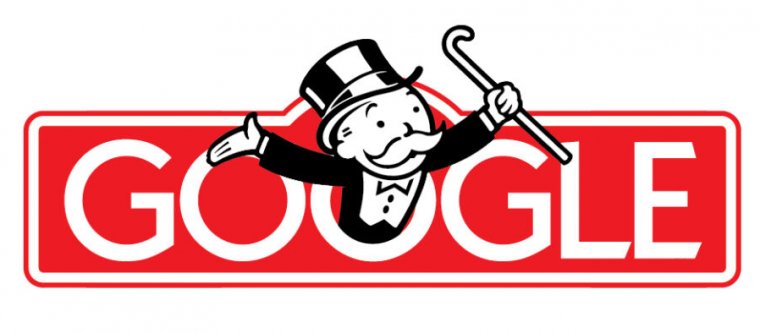
Enlarge / Let's see, you landed on my "Google Ads" space, and with three houses... that will be $1,400. (credit: Ron Amadeo / Hasbro)
Google's latest antitrust headache is coming from the US government, which is starting to take issue with how Google bundles Google Maps and restricts developers from using competing services. Nothing's official yet, but Reuters' sources say the US Justice Department "breathed new life into an investigation of Google Maps to determine if bundling the service together with other Google software illegally stifles competition."
The DOJ investigation is concerned with two Google Maps strategies. The first is surprisingly all about Android Automotive—note that this is not Android Auto, the phone app. Android Automotive (fully spelled out) is a full operating system manufacturers can ship on their cars. We covered it on the Polestar 2 last year. Like on phones, Google bundles its apps on Android Automotive. Google Maps is a killer app in a car, but if manufacturers want Google Maps, Google requires them to take the Play Store, the Google Assistant, YouTube Music, and any other car apps the company makes. The Justice Department is concerned that this requirement stifles competition.
What's surprising about this move by the DOJ is that the US never made Google do anything about app bundling on phones, which is a much larger market. Android Automotive is a very new, very limited OS, available on only around 10 vehicles, like the Polestar 2, other Volvo vehicles like the XC40 Recharge, the GMC Hummer EV, and soon 2023 Ford vehicles. Android, meanwhile, is on about 2.5 billion phones worldwide. The US has gone after Google for limiting app store competition on Android, paying to be the default search engine on most platforms, promoting its own services in search, and anticompetitive behavior in the advertising market. But Google is still free to bundle its apps on phones.
Read 5 remaining paragraphs | Comments

Enlarge / Let's see, you landed on my "Google Ads" space, and with three houses... that will be $1,400. (credit: Ron Amadeo / Hasbro)
Google's latest antitrust headache is coming from the US government, which is starting to take issue with how Google bundles Google Maps and restricts developers from using competing services. Nothing's official yet, but Reuters' sources say the US Justice Department "breathed new life into an investigation of Google Maps to determine if bundling the service together with other Google software illegally stifles competition."
The DOJ investigation is concerned with two Google Maps strategies. The first is surprisingly all about Android Automotive—note that this is not Android Auto, the phone app. Android Automotive (fully spelled out) is a full operating system manufacturers can ship on their cars. We covered it on the Polestar 2 last year. Like on phones, Google bundles its apps on Android Automotive. Google Maps is a killer app in a car, but if manufacturers want Google Maps, Google requires them to take the Play Store, the Google Assistant, YouTube Music, and any other car apps the company makes. The Justice Department is concerned that this requirement stifles competition.
What's surprising about this move by the DOJ is that the US never made Google do anything about app bundling on phones, which is a much larger market. Android Automotive is a very new, very limited OS, available on only around 10 vehicles, like the Polestar 2, other Volvo vehicles like the XC40 Recharge, the GMC Hummer EV, and soon 2023 Ford vehicles. Android, meanwhile, is on about 2.5 billion phones worldwide. The US has gone after Google for limiting app store competition on Android, paying to be the default search engine on most platforms, promoting its own services in search, and anticompetitive behavior in the advertising market. But Google is still free to bundle its apps on phones.
Read 5 remaining paragraphs | Comments
March 31, 2022 at 03:16AM

Post a Comment